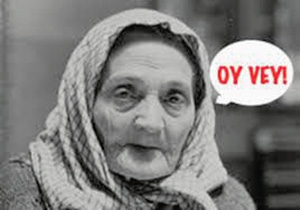
The word “Jews” rhymes with “news,” which is fitting because many Jews like to stay on top of the news. That is why so many Jews greet each other by asking: “So, what’s new?” (As an aside, if you want to know how well someone is recovering from pneumonia, it might be more appropriate to ask: “So, what’s pneu?”)
Journalism and Judaism have some similarities including the fact that in their most ideal forms, they both value truth and aspire to better the world. In that way, they are very compatible and that may be one of the reasons that there are so many wonderful and successful Jewish newspapers, magazines and other publications including this one, of course. (Yes, I hope the editors of this publication are so flattered by this blatantly obsequious compliment that they nominate me for a Pulitzer.)
The Talmud does not specifically discuss newspapers or journalism but it recognizes the importance of public announcements in certain instances including when a Jew finds an item that does not belong to him or her. For example, if a person finds bundles of grain in a public area and the bundles have a distinguishing mark, then “the one who finds it is obligated to proclaim his find.” (Bava Metziah 22b) The same is true with respect to other items such as “a round cake of pressed figs with an earthenware shard inside it or a loaf of bread with coins inside it,” because in both instances the finder also “must proclaim his find.” (Bava Metziah 23a) Thus, at least when it comes to the lost & found, Judaism requires news to be broadcast to some degree.
While journalism and Judaism have common ground, they do not necessarily and automatically go hand-in-hand in every respect and under every circumstance, especially when it comes to investigative reporting. For the record, investigative reporting serves an incredibly valuable service to the community and beyond. Some reporters are heroes because they shed necessary light on otherwise dark places in our society while others uncover beautiful and inspiring stories that might otherwise escape public attention.
That said, one could possibly imagine a situation in which an investigative reporter and a Jew could find themselves at cross-purposes. To demonstrate this issue, the following hypothetical is an imaginary and admittedly extreme example showing what could possibly happen when journalism and Judaism collide:
Reporter: Excuse me, I’m a reporter for a local newspaper and I’m doing a story on your next-door neighbors.
Jew: Mazel tov to you.
Reporter: Thanks. Do you know the family who lives next-door?
Jew: Yes.
Reporter: What can you tell me about them?
Jew: Nothing.
Reporter: But you just said that you know them.
Jew: Yes, that’s true, but the laws of lashon hara forbid any gossip.
Reporter: Well, do you think your neighbors have done something wrong?
Jew: Sorry but I can’t answer that either. The 9th commandment prohibits me from bearing false witness against my neighbor.
Reporter: I understand completely. Is your wife around? Perhaps I can speak with her.
Jew: Sorry again, it’s Friday so she is very busy.
Reporter: Alright, well if it’s more convenient, I can come back tomorrow.
Jew: Unfortunately that does not work because tomorrow is Shabbos so we won’t be able to speak with you.
Reporter: No worries. I can meet you on Sunday as long as we can discuss your neighbors in some respect.
Jew: But I can’t. The golden rule states that you should do unto others as they would do unto you. And I would not want my neighbors discussing my personal business with the press.
Reporter: O.K., I accept that. Perhaps I can just ask some general questions about the neighborhood.
Jew: That actually sounds relatively pareve, so to speak, so that might be acceptable.
Reporter: Great. Can we schedule a sit-down interview for the third week of September?
Jew: No, that’s Rosh Hashanah and then Tzom Gedaliah.
Reporter: How about the following week?
Jew: Nope. That week is Yom Kippur.
Reporter: What about the next few weeks after that?
Jew: No can do. It’s Sukkot, Simchat Beis Hashoeva, Shemini Atzeret and Simchat Torah.
Reporter: Wait a minute. Are you just making up excuses?
Jew: No, those are real Jewish holidays, no joke.
Reporter: Fine, I believe you, of course. Perhaps I can just take a photograph of your home.
Jew: No, whatever you do, please don’t do that!
Reporter: Forgive me. I didn’t know that photographing your home would be prohibited.
Jew: No, such a photo would be fine but the house is being re-painted next week so I’d rather you take it then. Otherwise, my wife will be annoyed and I may never hear the end of it.
Bottom-line: Why did the reporter put on a kippah when interviewing himself? He was covering the story.
By Jon Kranz











